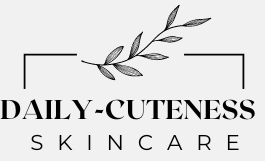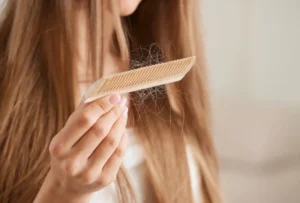In 2024, the options to stop hair loss are more advanced and diverse than ever before. To make your hair grow normally again and regain your self-confidence, you need to understand the cause of the problem and use effective methods.
How to understand the consequences of hair loss
Extensive hair loss can seriously affect a person’s self-esteem and overall health. It can make you feel insecure and hurt your ability to make friends and progress at work.
Why it is important to tackle hair loss
Dealing with hair loss isn’t just about appearance; it’s about increasing your self-esteem and improving your life. As research and technology advance, people who want to effectively combat hair loss have more options.
Factors that can cause hair loss
Genetics, hormonal issues, nutritional deficiencies and lifestyle choices are just some of the factors that can contribute to hair loss. Understanding these factors can help you tailor your treatment plan for optimal results.
inheritance of traits
Genetics plays an important role in hair loss. Some genes make people more susceptible to conditions such as male or female pattern baldness.
Hormone problems
Hormonal changes, such as those that occur during pregnancy or menopause, can cause hair to thin. Hormone imbalances, such as between testosterone and estrogen, can harm the health of your hair follicles.
Malnutrition
Hair can thin if you don’t get enough of certain nutrients, especially vitamins and minerals that are important for hair growth.
Stress and what you do every day
Stress, poor diet and lifestyle choices such as smoking and drinking too much alcohol can also damage hair growth and cause hair thinning.
New way to stop hair loss and thinning hair
Advances in medical technology are making new solutions for hair loss possible, giving hope to those suffering from hair loss.
Stem cell therapy to grow new hair
When a person undergoes stem cell treatment, their own stem cells are used to help the hair follicles grow back, resulting in new hair growth.
Nanotechnology is used to promote hair growth.
Nanotechnology can create tailored delivery methods to most effectively promote hair growth.
micropigmentation of the scalp
Scalp micropigmentation is a non-invasive treatment that uses special dyes to make hair appear larger. It can help people with faded or thinning hairlines.
Laser therapy helps the hair grow back
A low-level laser treatment activates the hair cells, increasing blood flow and nutrient supply to the head. This will make your hair grow faster.
Different approaches to treat hair loss holistically
In addition to medical treatments, using natural methods can help keep your hair healthy and reduce the risk of hair thinning.
Diet and nutrition are very important.
If you want your hair to grow healthily, you need a varied diet rich in minerals such as iron and zinc, as well as vitamins A, C, D and E.
Tips for dealing with stress
Some stress management techniques, such as yoga, meditation and deep breathing, can help lower cortisol levels and stop worry-related hair loss.
Scalp care and care
Good scalp care by washing, exfoliating and moisturizing regularly helps keep your scalp healthy and promote hair growth.
Supplements and herbal remedies
Herbs and vitamins, such as saw palmetto, biotin and collagen, have been shown to promote hair growth and can help prevent hair loss from getting worse.
Latest changes in hair loss treatments
The future of hair loss treatment looks bright, with new trends focusing on personalized approaches and technological advancements.
Hair health medicine made just for you
Thanks to advances in genetic testing and personalized medicine, everyone can receive a treatment plan specifically tailored to their genes and hair loss trends.
Wearable hair monitoring technology
Wearable technology with sensors can monitor things like vitamin levels, skin health and environmental exposure. This will provide you with useful information for developing your own hair care practices.
Use of artificial intelligence in hair care products
AI-powered hair care products can monitor your hair and skin condition, recommend the best performing products and track your progress for optimal
Both genetics and culture play a role in experiencing hair loss. Although hair loss is often associated with aging, it can occur in younger people for a variety of reasons.
Is there anything natural that can help prevent hair loss?
Yes, natural remedies such as botanical pills, essential oils and dietary changes can help keep your hair healthy and prevent thinning. But before starting any new treatment, always talk to your doctor or nurse to make sure it is safe and helpful.
Does stress really cause hair loss?
Yes, chronic concerns can disrupt the hair growth cycle, which can lead to increased hair loss and thinning over time. Managing stress through relaxation techniques and changes in your daily routine can help keep your hair healthy.
Is hair transplantation the only way to permanently stop hair loss?
Some people can achieve lasting benefits from hair transplant treatments, but these may not be suitable or even necessary for everyone who experiences hair loss. There are many non-invasive and minimally invasive hair loss methods that work well and do not require surgery.
How long does it usually take to treat hair loss?
How long it takes to see results from hair loss treatment depends on the type of treatment you use, personal factors and the severity of the condition. Some methods may work better after a few weeks to months, while others may take longer to work best.


